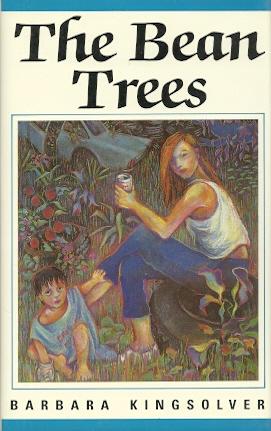

Kingsolver's fiction is rich with the language and imagery of her native Kentucky. She also enrolled in a writing class taught by author Francine Prose, whose work Kingsolver admires. In the early eighties, she pursued graduate studies in biology and ecology at the University of Arizona in Tucson, where she received a Masters of Science degree. After graduating in 1977, Kingsolver lived and worked in widely scattered places.

She also took one creative writing course, and became active in the last anti-Vietnam War protests. Kingsolver left Kentucky to attend DePauw University in Indiana, where she majored in biology. It was inconceivable that I might grow up to be one of those myself." Besides, the writers she read, she once explained, "were mostly old, dead men. Growing up in a rural place, where work centered mainly on survival, writing didn't seem to be a practical career choice. Still, it never occurred to Kingsolver that she could become a professional writer. Kingsolver has always been a storyteller: "I used to beg my mother to let me tell her a bedtime story." As a child, she wrote stories and essays and, beginning at the age of eight, kept a journal religiously. "The options were limited-grow up to be a farmer or a farmer's wife." While her family has deep roots in the region, she never imagined staying there herself. She grew up "in the middle of an alfalfa field," in the part of eastern Kentucky that lies between the opulent horse farms and the impoverished coal fields.

The novel's theme of fear, flight, homelessness, and finding sanctuary within a community are present in Taylor's struggle to find a place where she belongs, and the more urgent plight of two Central American refugees, Estevan and Esperanza. Her newfound community also includes Mattie, who runs a safe house for political refugees in the upstairs rooms above her auto repair shop. In Tucson Taylor finds friendship and support in Lou Ann Ruiz, a fellow Kentuckian and single mother, with whom she and Turtle share a house. She has named the child Turtle, for her strong, snapping-turtle-like grip. By the time two tires give way in Tucson she has with her a stunned, silent three-year-old Cherokee girl who was, literally, dropped into her arms one night. At the start of the novel, she has headed west in a beat-up '55 Volkswagon, changing her name to "Taylor" when her car runs out of gas in Taylorville, Illinois. Marietta Greer spent her childhood in rural Kentucky determined to do two things: avoid getting pregnant and escape rural Kentucky.


 0 kommentar(er)
0 kommentar(er)
